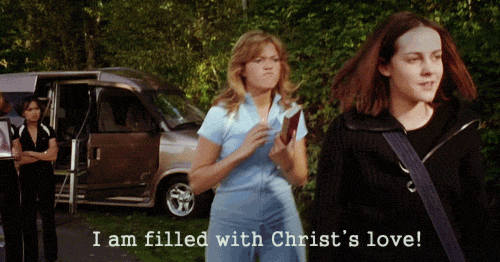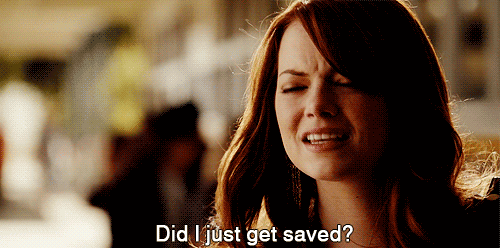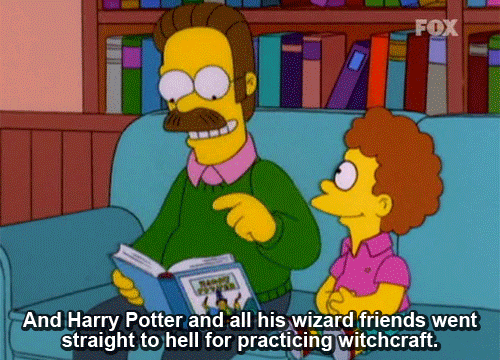Junk Explained: Everything That’s Wrong With Tony Abbott’s School Chaplains Program
With the new budget, students will have access to any sort of guidance they like, as long as it's Christian.

I have two memories of chaplaincy at my high school. The first was the time a chaplain told us that girls usually get bullied because boys find us attractive, and that our beauty can make them cruel. The second was the time when, as year sevens, we were only allowed to stay inside during freezing lunchtimes if we watched old DVDs of Veggie Tales, an American program featuring a talking tomato that dresses as a wise man and delivers the Ten Commandments.
The Abbott government’s budgetary gift of $243 million has put school chaplains back in the news, with all the associated questions regarding the program’s efficacy and ethical standing. With that kind of money, you could buy about 69,428,571 of Joe Hockey’s happy hour midis, or send 972 kids to space on a Virgin Galactic flight (which might be a quicker way to bring them closer to God anyway). I’m not sure that I got value for money, but one wonders what lies in wait for today’s students: full-blown indoctrination, or just a serving of Glee-style morality, forced cheerfully down their throats?

–
When does Footloose start? (or, what do chaplains actually do?)
The Howard, Rudd/Gillard and Abbott governments all seemed to think teachers seem to spend too much time marking trigonometry equations (and, presumably, reflecting on the dismal state of education funding), to provide shed loads of life advice. This is where chaplains come in: they’re trained in the provision of pastoral care, and are intended to lift the morale, welfare and ‘spiritual connections’ of kids through a variety of means. Under the old system, schools could apply for funding for a secular welfare worker or a chaplain, but Minister for Education Christopher Pyne has decided to cut the secular option, claiming that if the states want something pesky like an ordinary social worker, then they’ll just have to figure it out for themselves.
Currently, a school chaplain must possess either a Cert. IV in Youth Work or Cert. IV in Pastoral Care. These courses require a fraction of the time of a Bachelor or Masters degree in adolescent psychology or social work, meaning that chaplains are a lot cheaper than their secular equivalents.
Looks like the Jedi kids lose out again.
The National School Chaplaincy Association’s website has a proud K-Rudd testimonial. “I have always been a strong supporter of the role of chaplains in our schools — because they make a difference,” K-Rudd gushes, “They provide an additional adult role model in the school,” — which is good, because adult role models are notoriously tough to find in educational environments.
Under the old program, chaplains and youth workers were allowed into basically all areas of the school. They weren’t teachers, but their tasks included attending camp, assisting in school functions, organising ‘discussion groups’ (random compulsory Veggie Tales, anyone?), assisting other school counsellors with cases, offering spiritual guidance to anyone who asked for it, and referring students to other mental health services. It was basically a licence to have an all-round holy time in most areas of the school.
The new model focuses on the spiritual wellbeing of students, claiming that chaplains can do cool stuff like reduce depression and drug and alcohol dependence in students, just by being there. It’s an idea that skirts dangerously close to that whole ‘separation of church and state’ thing. Because the programs aren’t compulsory, though, a loophole is formed — so what if the right to not participate in chaplain support programs means you get no support at all?
–
Spirituality vs. mental health vs. the budgetary bottom line
As happy as we are for God-happy students, this policy stands out in the game of Whack-A-Mole that is the budget, simply because it is one of the only things that the Coalition have splashed cash on. It has been prioritised, despite:
- $543 million of cuts to indigenous programs.
- Cuts to education funding, with the Coalition only funding the Gonski reforms to 2018.
- About $8 billion of cuts to foreign aid.
- Cuts to university fees and future uni students paying a higher percentage of their course fees.
- All of these.
The official documentation goes on about the ‘spiritual wellbeing’ of kids today, and sure, youth mental health was flagged as a priority area for people under 25 before the election. Given the likelihood that they will encounter mental health issues, there isn’t a lot of argument around whether young people need more access to services. But spiritual wellbeing is only one aspect of mental health, and for many students, religious spirituality doesn’t enter the equation at all. By all accounts, what our schools are yelling out for is funding for infrastructure, roofs that don’t leak and a smaller gap between the wealthiest and poorest schools. Even if Joe Hockey is adamant that reducing the amount of federal money going to state education isn’t a cut, schools do feel like they’re copping the brunt of the slicing and dicing. They’re being denied solid building structures because ‘things were much worse’ that the government ever imagined.
Except that among the rubble of the budget emergency, Hockey was able to locate a spare quarter of a billion dollars to carve out the Rods and Todds of the future. It’s like nobody ever told the government that Australia is made up of kids from a vast array of social, cultural, religious and socioeconomic backgrounds! And that secular mental health care is not the same as that which is provided by people who have studied youth work through the lens of religion. Is it possible for a chaplain to provide advice to students without framing it in the terms of their belief system? Perhaps, but that’s hardly a reason to compel all school welfare workers to study the word of God.
–
The tenuous legal status of the school chaplains program
In 2012, Queensland man Ron Williams challenged the program in the High Court, claiming it was unconstitutional. The court agreed, ruling that the government didn’t have the power to spend money on state programs without first gaining the support of federal parliament, or by running the legislation through each state parliament individually. The then-Labor Federal government responded by rushing through federal legislation to validate the chaplaincy program, as well as to protect a whole tonne of other funding programs also made invalid by the High Court ruling.
Williams took the issue back to the High Court this month, with proceedings wrapping up the week before the budget. If the High Court again supports his claim, then the government won’t be able to fund the program. If that happens, they might need to transfer the cash to other initiatives that help students’ spiritual development — maybe a ‘National Schools Jumping Castle Programme’, or a ‘National Schools Wear a Snuggie and Watch Game of Thrones Instead of Doing Exams’ fund.
–
If Joe Hockey’s shaky performance on Q and A last night was anything to go by, this government is more than happy for young people to just figure things out (like how to get a job when there isn’t one) all on their very own. That stands, it seems, unless you’re willing to accept your advice from someone carrying more than a little religious baggage. Good luck, young Australia: God’s with you, whether you like it or not.

–
Emma Koehn is a freelance writer, and former editor of Farrago. Find tweets at @MsEmmaK.
